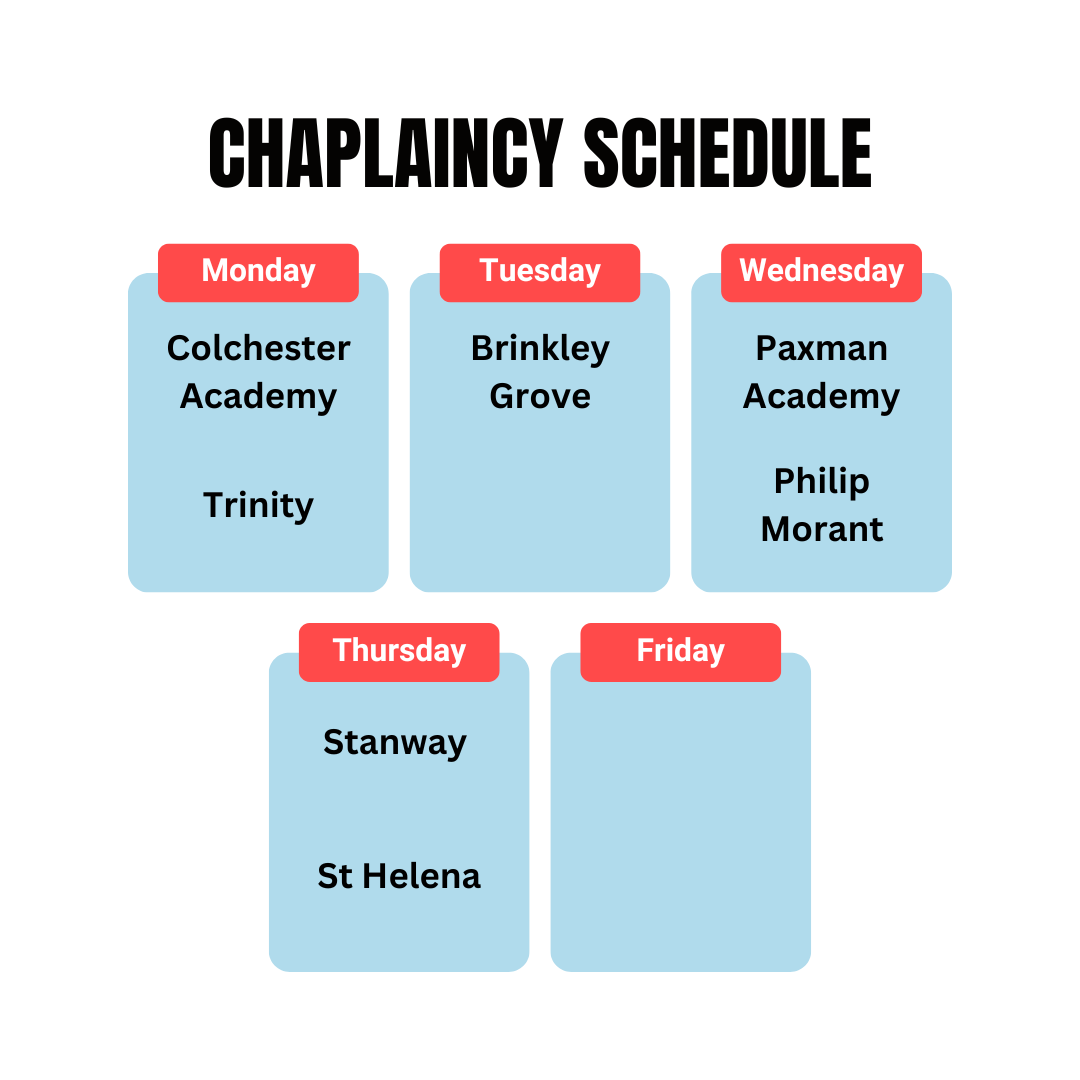Chaplaincy allows us to make a unique contribution to the lives of children and young people in schools by being there every week, not just as visitors but as part of the staff team.
This role contains three main elements: Spiritual Development, Pastoral Care, Being Available



Across Colchester
Currently, there are Chaplains (or chaplaincy teams) in 6 secondary schools across Colchester. Recently, CYO established their first Mission Partner which has launched the first chaplaincy team in a primary school. CYO chaplains are made up of staff, volunteers, and Mission Partners.
Our big dream is to always connect the work of chaplains in schools to the local church.
“It’s amazing to see the difference it makes. Being there on a weekly basis to support, encourage, to listen, to create space for deeper conversations.” Chaplain
“I’m so grateful for the work of the Chaplain in our school. They’ve helped us increase our SMSC offering and are a great support for students that are going through a difficult time.” Assistant Head Teacher



